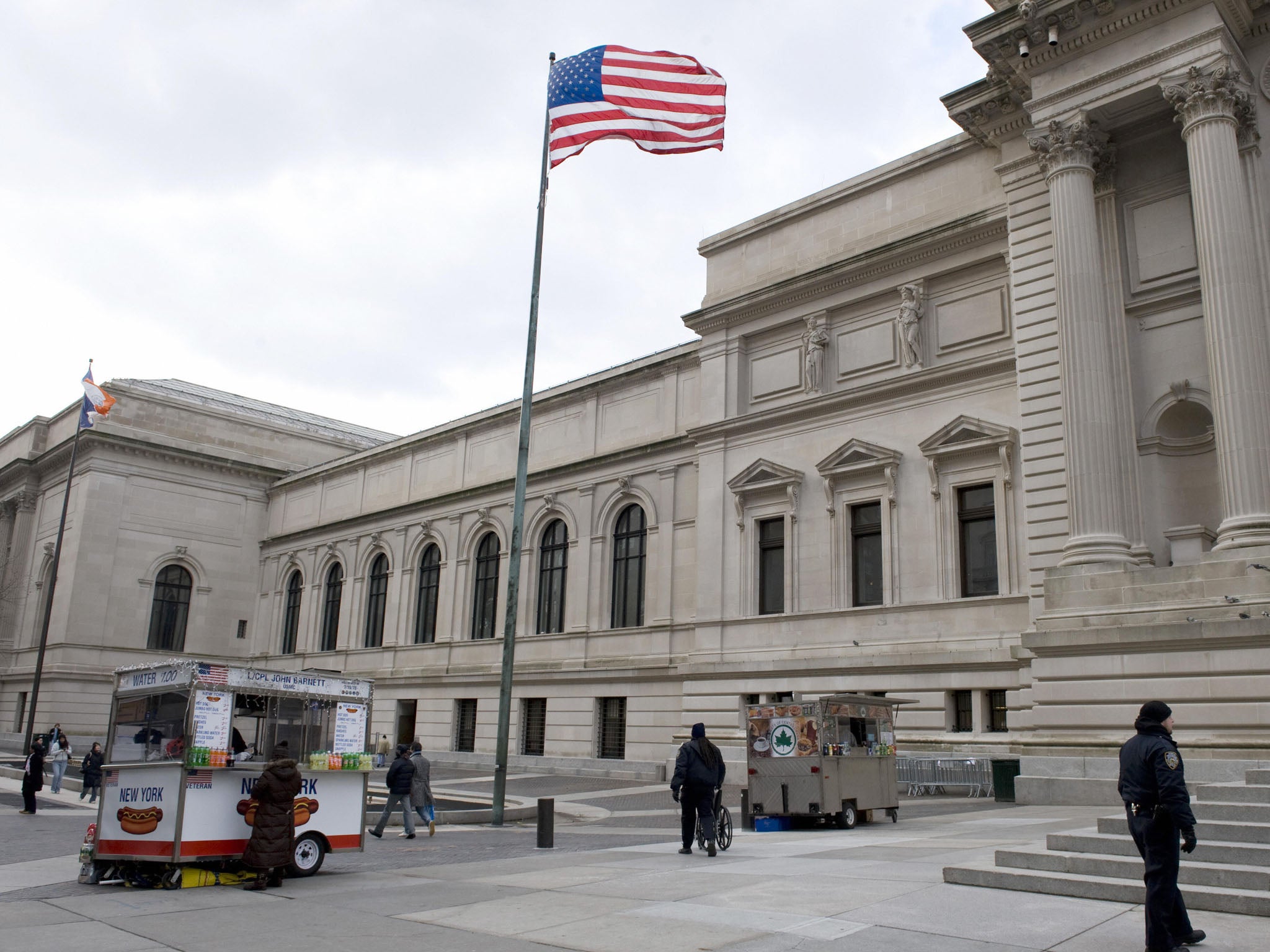New York's Met museum sued over 'recommended' $25 admission fee

Your support helps us to tell the story
From reproductive rights to climate change to Big Tech, The Independent is on the ground when the story is developing. Whether it's investigating the financials of Elon Musk's pro-Trump PAC or producing our latest documentary, 'The A Word', which shines a light on the American women fighting for reproductive rights, we know how important it is to parse out the facts from the messaging.
At such a critical moment in US history, we need reporters on the ground. Your donation allows us to keep sending journalists to speak to both sides of the story.
The Independent is trusted by Americans across the entire political spectrum. And unlike many other quality news outlets, we choose not to lock Americans out of our reporting and analysis with paywalls. We believe quality journalism should be available to everyone, paid for by those who can afford it.
Your support makes all the difference.The Metropolitan Museum of Art in New York faces the possibility of tens of millions of dollars in lost revenue if a lawsuit over its allegedly misleading admissions policy succeeds.
The museum's "recommended" admission charges violate the terms of its lease with the city, according to a complaint filed on Nov. 14 in New York State Supreme Court in Manhattan.
"The Met is as much the property of citizens as the trustees who manage the art inside," Theodore Grunewald, a trained architect and one of the suit's plaintiffs, said in an interview. "The Met has engaged in deceptive practices."
Harold Holzer, a Met spokesman, called the suit frivolous because the city approved the Met's policy. "I don't know what this brouhaha is all about," Holzer said.
Admission and membership fees totaled $64.8 million in the year ending in June 2012 — more than a quarter of operating revenue — according to the Met's annual report.
The museum recommends on signs above admissions desks that visitors pay $25 to enter, or $17 for those 65 or older and $12 for students. The Met sells advanced tickets on its website for the full "recommended" charge. It still accepts as little as a penny at museum ticket booths.
In an 1878 lease with the Department of Public Parks of the City, the museum agreed to admit everyone free four days each week in exchange for use of its land. The lease, which is attached to the complaint, was modified in 1892 and 1893, requiring free admission two evenings and five days a week, according to the complaint. Rent today would cost the museum about $368 million per year, according to the complaint.
Admission was free until the early 1970s, when the museum instituted a "voluntary 'pay what you wish — but you must pay something' admission policy," a 1993 museum bond offering prospectus said.
Recommended admission was introduced "during an era of sharply reduced municipal operating support," the Met said Nov. 21.
Danai Pointer, a spokesman for New York City's Department of Cultural Affairs, declined to comment. The $25 "recommended" fee covers about half of the approximately $45 "it actually costs the museum to welcome each and every visitor," according to the Met statement. Visitors — excluding members and employees of corporate members — pay an average of less than half of the $25 recommended admission, Holzer said.
A survey of more than 360 Met visitors by the plaintiffs found that 65 percent became members because they believed joining enabled them or a guest to enter free, according to the complaint. Three-quarters of those surveyed who weren't members said they believed that they paid an "admission fee," according to court papers.
"They're making them think they need to pay the full price when they don't need to pay any price," said Grunewald, who filed the suit with Patricia Nicholson.
Grunewald said he works as an archivist for a media company he declined to name. Nicholson lives across Fifth Avenue from the Met and co-founded the nonprofit Metropolitan Museum Historic District Coalition. The coalition a decade ago battled the museum and city over an expansion it said would increase congestion and pollution.
Although State Supreme Court Justice Marcy Friedman ruled in 2004 that the statute of limitations expired before the coalition's challenge, Nicholson said in an interview that it had successfully pressured the Met to limit its work.
In the Nov. 14 complaint, the plaintiffs asked the court to order the museum to stop charging admission on free days, to inform the public that free days are available, and to make changes to signs and promotional materials to prevent visitors from being misled about the policy.
They also seek to have a museum entrance fronting Central park. There had been a park entrance until 1902.
"Any impact on the people across the street would probably be reduced," Arnold Weiss, a lawyer for Nicholson and Grunewald, said of the effect of new crowds at the museum.
As for the shortfall from eliminating recommended admissions, Grunewald called on wealthy trustees to increase donations and the Met to rethink its priorities, including a $65 million reconstruction of its outdoor plaza.
"At a time when working people are hurting, $25 is a hardship for anyone but the upper middle class," he said.
"It's like a fine piece of music that you want to hear again," Grunewald said of the Met. "It requires repeated visits."
— With assistance from Christie Smythe in New York.
Join our commenting forum
Join thought-provoking conversations, follow other Independent readers and see their replies
Comments